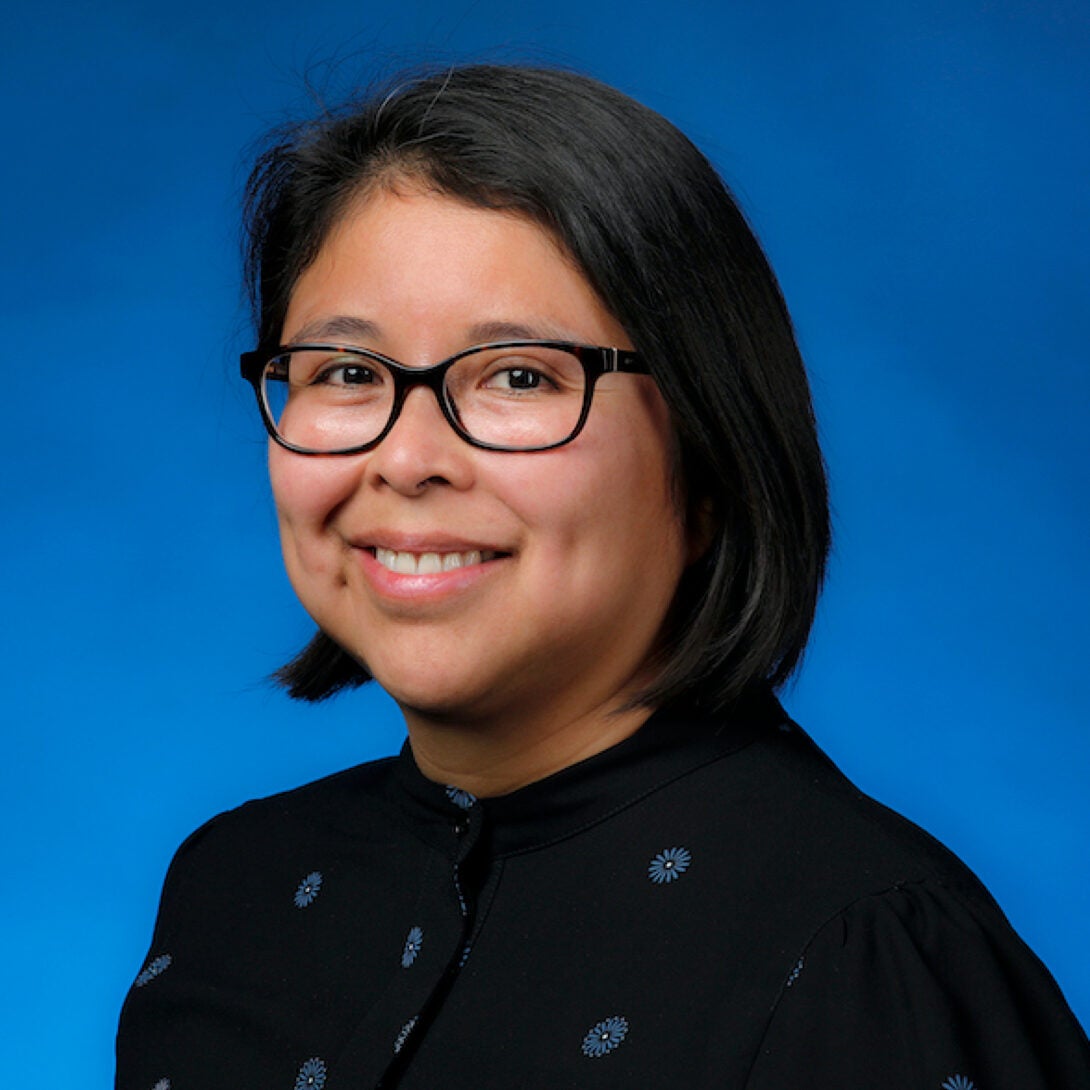AI and Machine Learning: Program Director’s passion for engineering influences UIC’s transformative AI and ML curriculum
AI and Machine Learning: Program Director's passion for engineering influences UIC’s transformative AI and ML curriculum Heading link

Meet Dr. Carmen Lilley, UIC Associate Professor and Program Director of the online Master of Engineering with a focus area in AI and Machine Learning (MEng) program.
Having worked at the University of Illinois Chicago for over 20 years, Dr. Lilley became the Associate Dean for Graduate Studies in 2021 and began working on the design of the MEng curriculum shortly after. As the Program Director, Dr. Lilley has taken great pleasure in collaborating with faculty who are experts in AI/ML or business leadership, as well as the designers to bring the MEng program online. Under her leadership, the MEng team has developed a program that is transformative and in sync with the cutting-edge state of AI and machine learning.
With a PhD in Theoretical and Applied Mechanics, Dr. Lilley’s path to engineering started at a young age. Fueled by an early fascination with sci-fi television and movies, coupled with her admiration for astronauts as “elite scientists,” she found her calling in the realms of science and engineering. Dr. Lilley discusses the online MEng program, what keeps her excited about AI/ML, and her work with nanomaterials.
Tell us about yourself. How did you become interested in the engineering field?
My fascination with engineering began as a childhood interest in science fiction and astronauts. To me, astronauts were always the elite because they had to be intelligent, athletic, and be driven. A good percentage of astronauts have had engineering backgrounds with doctorates in STEM which is what got me interested in engineering.
I went on to pursue a general engineering undergraduate degree because I hadn’t yet determined the specific engineering field, I wanted to specialize in. I then went on to get my doctorate in Theoretical and Applied Mechanics.
What was the process like designing the curriculum for the Master of Engineering with a focus area in AI and Machine Learning (MEng) program at UIC?
The program’s curriculum is a consensus among the faculty in MEng who are experts in AI/ML or business leadership. Their feedback formed what our new curriculum should reflect like highlighting the most relevant technical skills that would have the highest impact on our MEng students. Students will learn the fundamentals, but also the application. We kept our professional students in mind and based our decisions off of how they might use their program knowledge in their everyday careers. AI and ML will revolutionize a lot of the way we do things and make decisions, so we wanted to make a curriculum that reflected that.
What are your goals as the program director of the online MEng program?
When we think of AI and machine learning we tend to think about theory and math, and not as much application. The MEng program is really about applying AI and machine learning to different sectors. I read all of the MEng applications, and I can see that our students come from a wide array of backgrounds. Each student brings a different perspective and experience. Maintaining a diverse study body is important, because it enables them to learn from one another.
While our program allows students to develop the core strengths in understanding AI and how it is used, we want them to also understand the limitations or constraints of AI. This is very important because as issues emerge, we need to also think of fairness, ethics, and bias of machine learning. This helps them learn what they should be paying attention to to make informed decisions.
What keeps you excited about the fields of AI and machine learning?
The fact that it’s evolving so quickly is exciting. I think there’s a lot of interesting implications. AI will fundamentally change not only our everyday experiences, but also our work experiences. It’s beginning to impact almost every industry and it’ll be interesting to see the emergence of new careers in AI and machine learning.
What’s something you’ve learned about having a successful career that you’d like to pass on to online MEng students?
I have two philosophies. The first one is how you engage with others is so important. I believe in the idea that you connect with others better when you are being your authentic self every day, and it will help you communicate and collaborate effectively in the workplace.
Secondly, your career journey is not a line. It’s not even a curved path. When it comes to careers, there will be many times where you’re going to have to pivot into something new rather than stay on the track that you were on. My advice is to constantly challenge yourself and learn new things.
Tell us about the most exciting project you are working on right now.
I work on nanomaterials, and one of the things I’m really excited about, ironically enough, is that we’ve been using machine learning to do predictive material design. The goal is to create inverse design. I know that one of the materials we are predicting right now is physically possible, we just don’t have the technology to make them yet. However, I have a feeling the technology might happen in the next five years. There’s a lot of investment going on with the CHIPS Act and the semiconductor industry, as well as a lot of investment going on with quantum materials.
What advice do you have for students interested in pursuing their online MEng degree?
My advice is to just go ahead and reach out. We aim to always give tailored or individual advice because every student has unique experiences and unique educational backgrounds. The recruiters, advisors and I work together to give you the best feedback we can to set you up for success in the program. Don’t hesitate to reach out and ask questions.